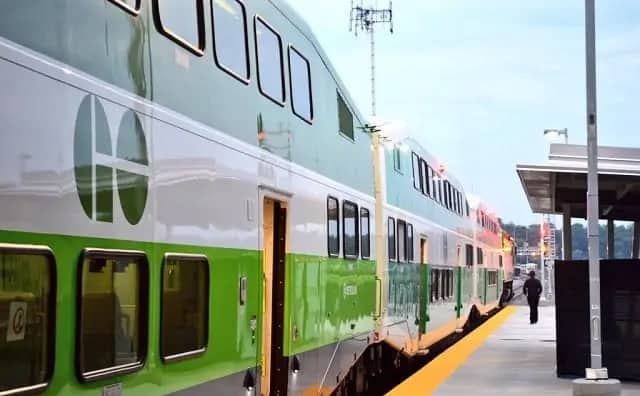Fare evaders on GO transit will face new fines in Mississauga, Brampton and beyond
Published September 9, 2022 at 8:01 am

Fare evaders on GO transit take note — there is a new graduated fine structure coming to the commuter trains and buses.
Currently, passengers found travelling without a valid ticket on GO transit or UP Express may be subject to a fine of $100. Officers could also issue educational notices for first time offenders and minor non-compliances.
“This approach, however, does not allow for the recovery of lost revenue as there is currently no process for Revenue Protection Officers to sell tickets to customers or to issue penalty fares,” notes a report to Metrolinx’s board of directors on Sept. 8.
Under the new plan, first-time offenders could get a $35 fine. For second offences, a $50 penalty fare will apply and the $100 fine will be issued for third offences.
Passengers with four or more offences will be automatically served a Provincial Offence Notice with a set fine of $200. The next step in the escalation process would be a court date. If convicted, the offender could face fines up to $5,000.
The new system is not meant to be punitive.
“This new approach to managing fare-related offences would enable Metrolinx to recover lost revenue while ensuring a fair, consistent approach for fare evaders, while improving the perception of fairness among compliant customers,” the report notes.
Fare payment on GO Transit and UP Express services is based on an honour system, enforced by proof-of-payment fare inspections.
Metrolinx said “a small percentage of passengers” are travelling without paying a valid fare.
Critics of the new fee structure suggested public transit agencies should receive more funding from government, according to news reports. There is concern the fines will target people struggling with homelessness, racialized or low income residents.
But the board report said the plan has “an anti-racism-focused lens to prevent and remove any discrimination or bias in the design, application, training, community outreach and accountability mechanisms of the program and ensure the fair and equitable treatment of all passengers.”
The board approved the graduated fee structure on Sept. 8 and it will go into effect starting Oct. 10.
insauga's Editorial Standards and Policies advertising





